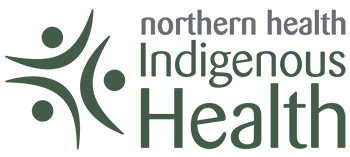Each week, the Indigenous Health department highlights good news stories from the North and from across the country.
Haida Gwaii community moves to restore Indigenous name
The conversation to change the name of the Village of Queen Charlotte back to its original Indigenous name, Daajing Giids (pronounced “daw jean geeds”), first began in April 2019. Elders and staff of the Skidegate Haida Immersion Program made a formal request at that time, to the village council noting, "We believe all Haida ancestral place names should be restored to our land and our seas," the letter said. "We believe that our precious Haida language will continue to flourish when the restoration and reclamation [of] our Haida language place names is gently and respectfully given back."
The Village of Queen Charlotte, located on the southern end of BC's North Coast, was given its name in 1908 by white settlers. Kris Olsen, mayor of the community located in the traditional territory of the Haida Nation noted, "We took this slow because we wanted to do it right. We are moving forward in a way that's uniting, it's healthy, and it’s healing.”
You can read the full story from CBC Indigenous.
Family urges Manitoba to change rules, formally accept newborn's Indigenous name
A Mohawk family has the support of Manitoba’s official opposition, the New Democratic Party (NDP), to bring forward a bill requesting endorsement of changes to the Vital Statistics Act that will allow them to register their daughter’s Indigenous birth name. They named their daughter, now three months old, Atetsenhtsén:we, which translates to "forever healing medicine" in Kanien'kéha, the Mohawk language. According the Vital Statistics Act the colon cannot be used for the purposes of name registration even though it is required in order to correctly pronounce her name in their language, noted the child’s father, Carson Robinson.
According to the Act, only French and English letters are accepted and accents can be used in name registration. "We're looking to end that sort of way of thinking between your need to name your baby either in English or in French. We want to be able to name our baby how we see fit in our traditional ways and our traditional ways of living," noted Robinson.
Read the full story and learn more from CBC Indigenous.
I·SPARC chosen to deliver popular community-based Food Systems Program
The Indigenous Sport, Physical Activity and Recreation Council (I·SPARC) has been chosen by the First Nations Health Authority (FNHA) to deliver the Food Systems Program (FSP) which will help to enhance First Nations food security and sovereignty in BC. Under the careful stewardship of the Heart and Stroke Foundation the FSP has expanded from 17 to 70 communities in total that are participating.
Grants totaling $5,000 have been used in innovative ways by communities to provide fresh foods that can be shared through community garden projects. This work has offered safe spaces for Nation-to-Nation sharing of goods and strengthening traditional bartering and trading relationships. “We are pleased to continue building on our valued relationship with the First Nations Health Authority, now to include the Food Systems Program," said Rick Brant, I·SPARC CEO.
Read more about this initiative on the FNHA website.

